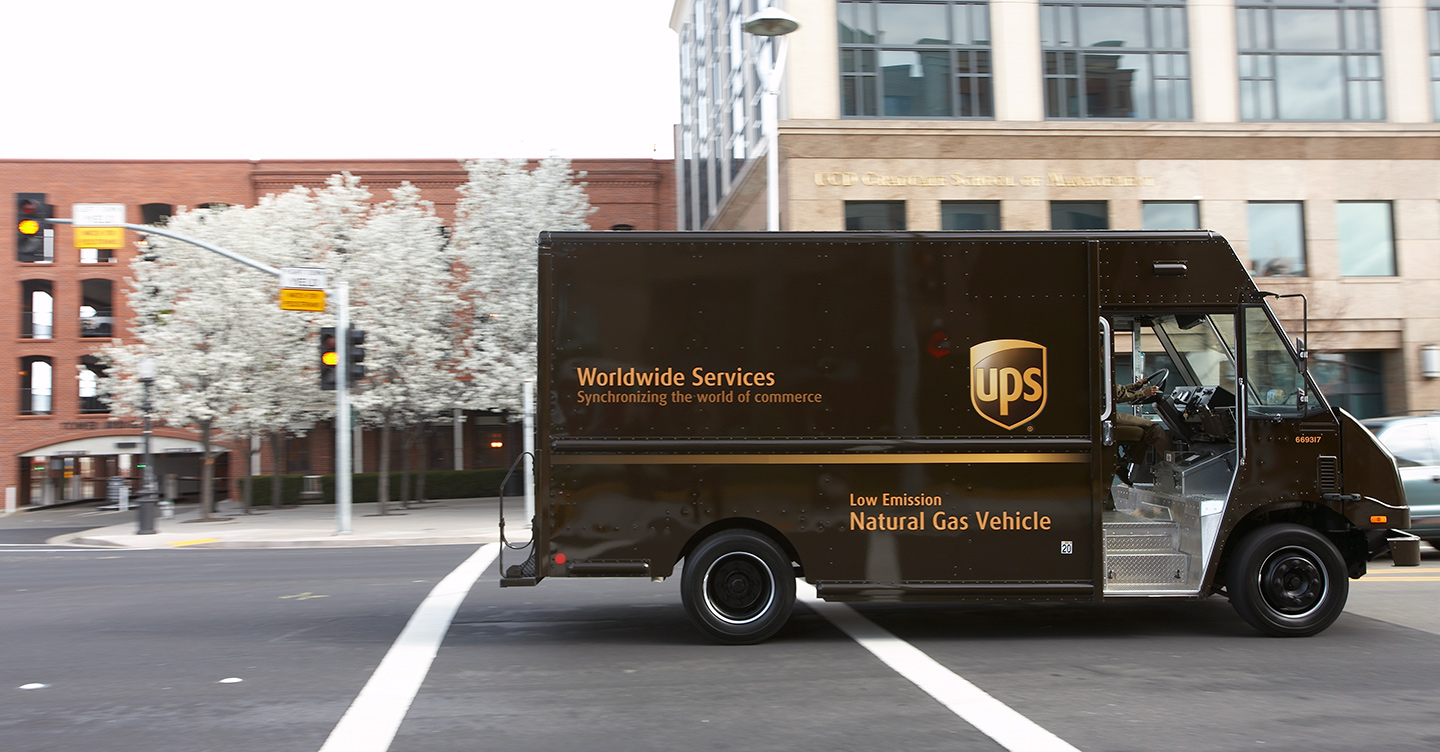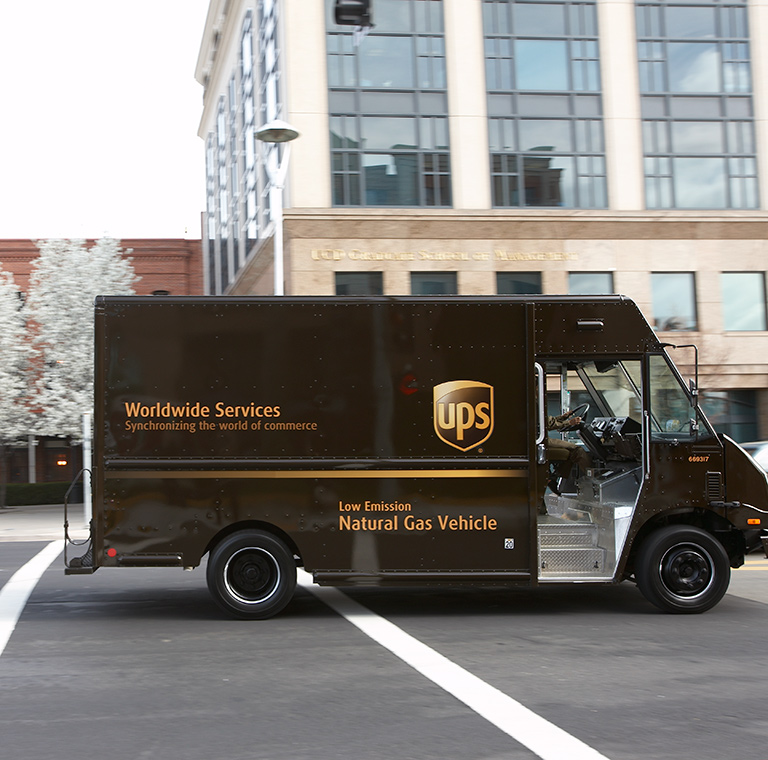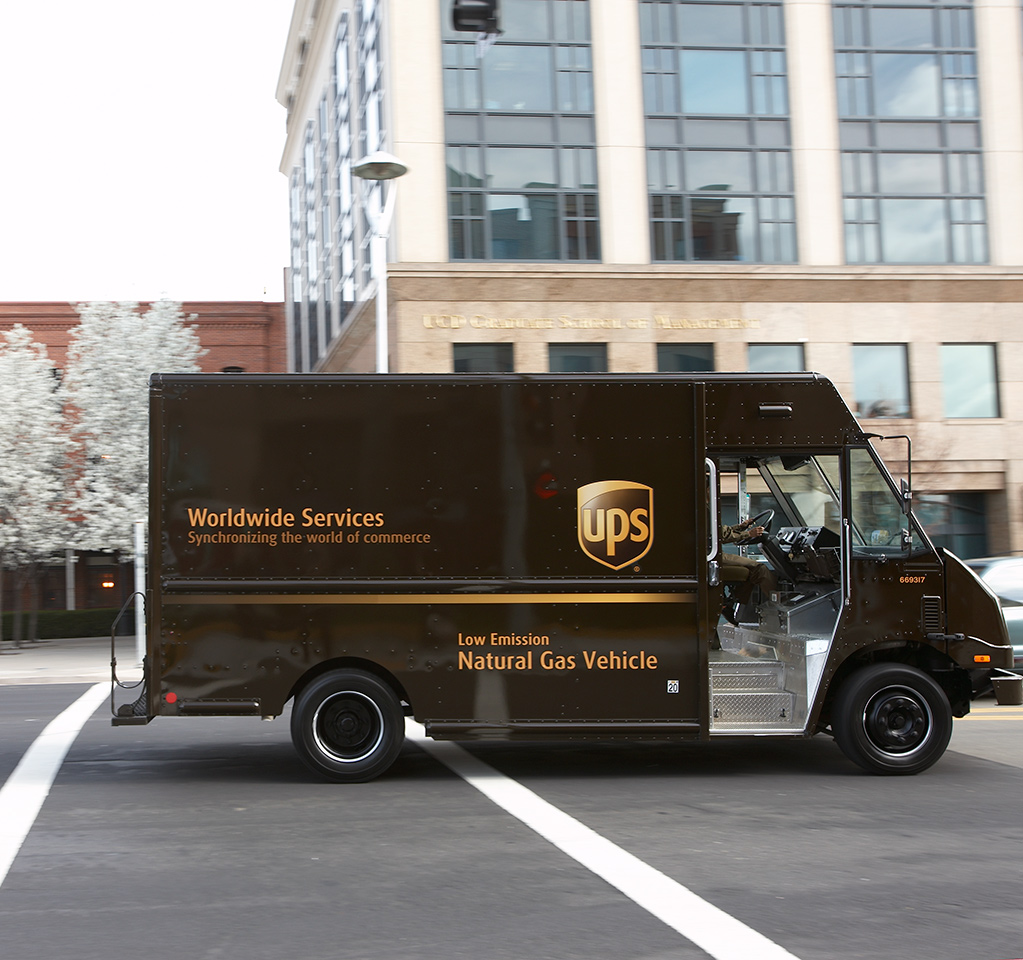Using an experimental Rolling Lab, UPS deploys more than 12,000 low-emission vehicles around the world. And UPS drivers log more than a million miles every business day in alternative fuel and advanced technology vehicles.
From pedal-powered and electric-assisted bicycles in dense urban areas like Hamburg, Germany to electric and hybrid-electric vehicles in cities across the U.S., UPS technologies based on the needs of each delivery route.
As an innovation-driven company guided by a strong purpose, UPS recently made a commitment to purchase more than 250 million gallon equivalents of renewable natural gas (RNG) over the next several years, making it the largest consumer of RNG in the transportation industry.
“The use of RNG is a very important part of UPS’s strategy to increase alternative fuel,” said Mike Whitlatch, UPS vice president of global energy and procurement. “We’re using both liquid natural gas (LNG) and compressed natural gas (CNG) as bridging fuels to increase our use of RNG. This will have a measurable impact … RNG yields up to a 90% reduction in lifecycle greenhouse gas emissions when compared to conventional diesel.”
UPS also recently announced plans to purchase more than 6,000 CNG-powered trucks. This commitment represents a $450M investment in expanding the company’s alternative fuel and advanced technology vehicle fleet.
“The world has a trash problem. And the world has an emissions problem. Renewable natural gas, produced naturally from bio sources such as landfills and dairy farms, turns trash into fuel,” Mike said. “It’s a winning solution that will help UPS reach our ambitious sustainability targets.”
Over the past decade, UPS invested more than $1 billion in alternative fuel and advanced technology vehicles and fueling stations. Future plans include the deployment of 10,000 all-electric Arrival delivery vehicles in North America and Europe.
As a global transportation company, UPS has a responsibility to put efficiency and sustainability at the core of operations.


